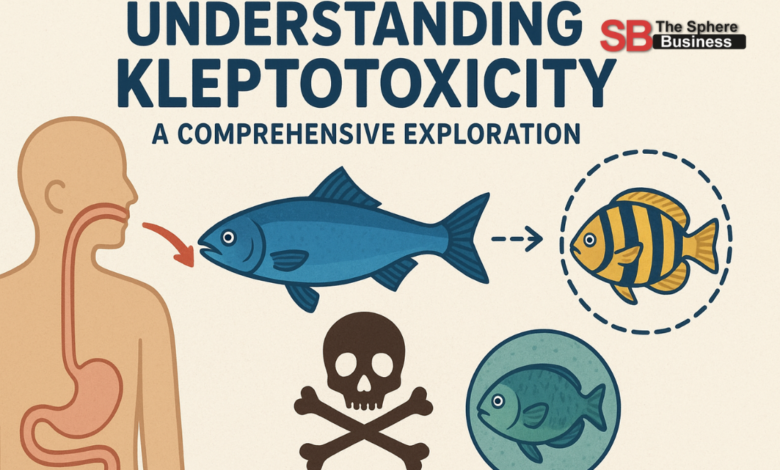Understanding Kleptotoxicity: A Comprehensive Exploration

Introduction to Kleptotoxicity
The term kleptotoxicity is an emerging concept that combines two ideas: “klepto,” meaning theft, and “toxicity,” referring to something harmful or poisonous. When brought together, kleptotoxicity can be understood as the harmful or destructive effects caused by stealing, exploitation, or unethical appropriation of resources, ideas, or opportunities. Unlike standard theft, kleptotoxicity emphasizes not only the act of taking but also the damaging ripple effects that follow.
In modern discourse, kleptotoxicity can apply to economics, politics, the environment, relationships, and even digital spaces. This article will explore its definitions, implications, and real-world examples while highlighting why understanding kleptotoxicity is crucial in today’s interconnected world.
The Origin and Meaning of Kleptotoxicity
To fully grasp kleptotoxicity, it is important to break down its components.
- Klepto: Derived from the Greek word kleptein, meaning “to steal.” It is commonly associated with kleptomania or kleptocracy, where stealing is central to the action.
- Toxicity: From the Greek word toxikon, originally referring to poison used on arrows. In contemporary use, it represents harmfulness or damaging effects.
When fused, kleptotoxicity describes the toxic consequences of theft, corruption, or misappropriation. It goes beyond the mere act of stealing, focusing instead on the systemic harm created in communities, ecosystems, and institutions.
Kleptotoxicity in Economics
One of the most apparent domains where kleptotoxicity manifests is economics. Financial systems are vulnerable to theft, corruption, and exploitation, and their toxic impacts are often long-lasting.
- Corporate Theft and Fraud
Companies that engage in embezzlement, tax evasion, or insider trading create a ripple effect that harms employees, shareholders, and the larger economy. The kleptotoxicity here lies not just in financial loss but also in eroded trust in institutions. - Kleptocratic Regimes
In countries governed by kleptocracies, political leaders exploit state resources for personal gain. This form of kleptotoxicity leaves nations impoverished, discourages investment, and perpetuates cycles of inequality. - Resource Misappropriation
Exploitation of natural resources, such as illegal mining or logging, represents kleptotoxicity because it robs communities of sustainable livelihoods while creating toxic ecological consequences.
Kleptotoxicity in Politics and Governance
Politics is another sphere where kleptotoxicity is often evident. Leaders and governments who abuse power to enrich themselves or their allies inflict damage that goes beyond monetary theft.
- Erosion of Public Trust: Political corruption creates disillusionment, leading citizens to lose faith in governance.
- Social Inequality: Resources meant for education, healthcare, and infrastructure are stolen, widening the gap between the rich and poor.
- Instability and Conflict: In extreme cases, kleptotoxic governance fosters unrest, revolutions, or civil wars.
A political system plagued by kleptotoxicity cannot sustain long-term development because its foundation is poisoned by exploitation.
Kleptotoxicity in the Environment
Environmental kleptotoxicity is a critical issue in the 21st century. The theft or unsustainable exploitation of natural resources leads to toxic results for ecosystems and future generations.
- Deforestation and Illegal Logging
Cutting down forests without replanting not only robs nature but also creates ecological imbalances, loss of biodiversity, and climate instability. - Water Resource Theft
Diverting rivers or illegally extracting groundwater results in scarcity, harming agricultural communities and ecosystems. - Pollution as Theft
Companies that dump toxic waste into rivers or release harmful emissions into the atmosphere are engaging in kleptotoxicity—they are stealing environmental health from society and future generations.
Thus, kleptotoxicity is not only a human-to-human issue but also a human-to-nature violation.
Kleptotoxicity in Relationships
Kleptotoxicity is not limited to politics or economics; it can exist in personal and social relationships as well.
- Emotional Theft: When someone manipulates or exploits others’ emotions for personal benefit, the toxicity damages trust and mental well-being.
- Intellectual Theft: Taking credit for someone else’s ideas in academic, creative, or professional spaces creates toxic resentment and discourages innovation.
- Time Theft: Consistently wasting another person’s time through exploitation or manipulation also contributes to kleptotoxic relationships.
These subtle but destructive forms of kleptotoxicity can corrode friendships, partnerships, and even family bonds.

Kleptotoxicity in the Digital Age
The rise of technology and digital spaces has introduced new forms of kleptotoxicity.
- Data Theft and Privacy Invasion
Cybercriminals who steal data from individuals or corporations not only rob information but also spread toxic consequences such as identity theft, financial fraud, and reputational damage. - Intellectual Property Theft Online
Plagiarism, piracy, and software cracking represent digital kleptotoxicity, harming creators, developers, and industries. - Misinformation and Content Theft
Copying or spreading false information without verification leads to toxic consequences for democratic processes, public health, and social harmony.
In the digital era, kleptotoxicity is perhaps more dangerous because its effects are amplified across global networks instantly.
Psychological and Social Dimensions of Kleptotoxicity
Kleptotoxicity also operates on a psychological and social level. Those who practice it may normalize harmful behaviors, leading to cultural acceptance of unethical practices.
- Normalization of Theft: In communities where corruption or exploitation is common, kleptotoxicity becomes part of daily life, damaging moral frameworks.
- Trauma and Distrust: Victims of kleptotoxicity often carry emotional scars, losing their sense of security and fairness.
- Collective Harm: Entire societies can be poisoned by kleptotoxicity, resulting in weakened social bonds and reduced solidarity.
This highlights the need for awareness, ethical education, and collective resistance.
Combating Kleptotoxicity
Addressing kleptotoxicity requires multi-level strategies.
- Education and Awareness
People must understand the concept and recognize its manifestations to actively resist it. - Transparency and Accountability
Governments, corporations, and organizations must be held accountable through regulations, independent audits, and open reporting. - Strengthening Ethical Frameworks
From personal relationships to business practices, ethics must be prioritized to counter kleptotoxic behaviors. - Technological Safeguards
In the digital world, encryption, cybersecurity measures, and intellectual property protections can reduce kleptotoxic risks.
Only through combined effort can the toxic effects of theft be mitigated.
The Future of Kleptotoxicity as a Concept
Though still a relatively new term, kleptotoxicity has the potential to become a vital concept in global discourse. By naming and framing the toxic effects of theft and exploitation, it helps societies better understand systemic problems and seek meaningful solutions.
As awareness grows, kleptotoxicity may become a recognized framework in academic, political, and social studies, much like “sustainability” or “systemic inequality.”
Conclusion: Why Kleptotoxicity Matters
Kleptotoxicity is more than just a word—it is a lens through which we can view and address the damaging consequences of theft, corruption, and exploitation across all levels of human and environmental systems. From politics and economics to relationships and digital spaces, kleptotoxicity leaves behind a toxic trail that undermines trust, fairness, and sustainability.
Recognizing kleptotoxicity empowers us to take action—through education, ethical practices, governance reforms, and technological safeguards. By combating kleptotoxic behaviors, societies can foster healthier environments, stronger relationships, and more equitable systems.





